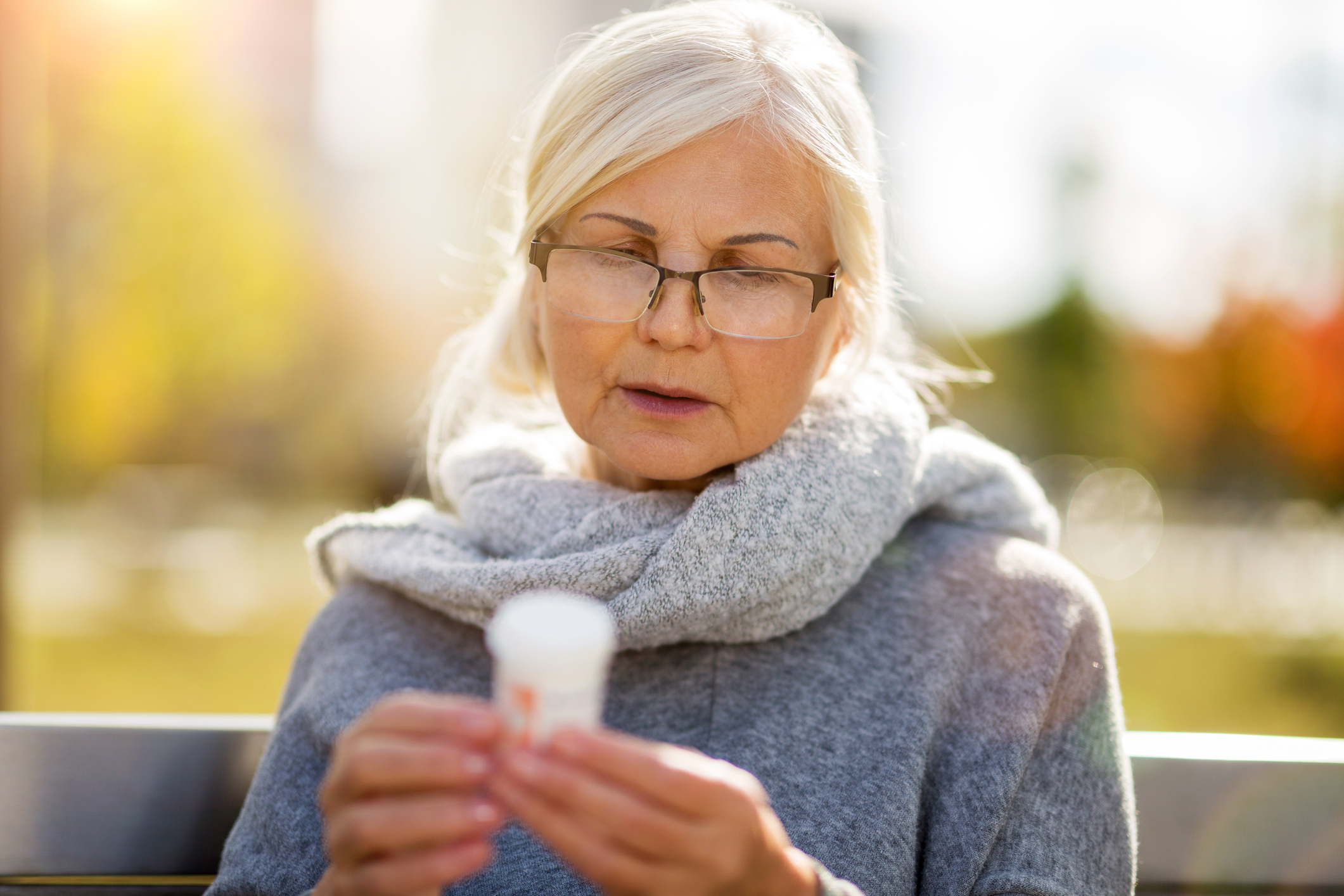Get Easy Health Digest™ in your inbox and don’t miss a thing when you subscribe today. Plus, get the free bonus report, Mother Nature’s Tips, Tricks and Remedies for Cholesterol, Blood Pressure & Blood Sugar as my way of saying welcome to the community!
Bisphosphonates for bone health: Therapy or fracture risk?

Are you at risk for bone fractures? If you’re a woman, you most likely are.
Breaking any bone is painful and frightening. However, more than 53 million Americans age 50 and older are at risk for osteoporosis due to low bone density. Women are especially vulnerable to hip fractures, especially after menopause, and men, too, in older age.
You see the commercials about bisphosphonates that are supposed to reduce the risk, but is the drug safe and effective?
The goal of oral bisphosphonate medications is to slow down the rate of bone thinning, resulting in stronger bones that are less likely to break. But then again, it comes with an increased risk of causing atypical femur fractures. Talk about scary. Imagine getting a bone fracture with little force or trauma after taking the drug for an average of three years.
That’s why researchers are trying to determine how helpful or practical they are, especially for women who use them long-term.
Bisphosphonate therapy: How effective for how long?
A recent Kaiser Permanente study concluded that women taking oral bisphosphonates for more than seven years gained no additional benefit in preventing hip fractures.
The research was conducted in a retrospective cohort study of nearly 30,000 women who completed five years of oral bisphosphonate treatment versus women who continued treatment for two additional years.
Here’s what they found. The 5-year cumulative hip fracture incidence was as follows:
- Discontinued use after initial 5 years: 23.0 hip fractures per 1,000 individuals
- Took a 6-month break from medication, plus 2 additional years back on: 20.8 per 1,000 individuals
- Continued for 5 additional years: 26.8 per 1,000 individuals
The group with the slightly lower ratio of hip fractures appeared to be the patients who took a break from the medication before starting it back up for an additional two years.
Additionally, after the initial five years of treatment, 37 percent of the women were diagnosed with osteoporosis. In following up with those women five years after treatment, 507 had experienced hip fractures.
A Task Force of the American Society for Bone and Mineral Research recommended in 2015 that low-risk patients should consider a bisphosphonate “drug holiday” after five continuous years of treatment. But on the other hand, women at high risk for fractures should continue with ongoing treatment.
But the researchers involved in this Kaiser Permanente study pointed out that benefits beyond five years of continued treatment remain largely a mystery.
Natural ways to boost bone health
If you currently take these medications, talk to your doctor about your concerns. It can certainly be confusing to decipher the data from these studies. But what’s obvious is that researchers aren’t sure if any benefits go away and possibly contribute to fractures, depending on the length of treatment with these drugs.
Fortunately, there are several natural ways to boost bone health, so let’s start there…
Regular exercise is critical for flexibility and healthy bones and doesn’t require a fancy gym club membership.
That’s because walking, jogging, hiking, dancing and even climbing stairs are weight-bearing exercises — and this kind of exercise has been shown to slow bone loss. Some studies have shown this kind of exercise can also build bone by stimulating extra deposits of calcium and nudging bone-forming cells, according to Harvard Health.
The proper nutrition can help you increase bone density, support structural health, and maintain your bone health as you age.
Here are foods and natural supplements that help build healthy bones…
- Eat plenty of green and yellow vegetables, one of the best sources of vitamin C, to stimulate bone-forming cell production.
- Consume calcium through food sources, unless directed by a physician to supplement it. Here’s why it matters.
- Add berries to your diet. The University of Connecticut found that supplementing a powdered form of a tart berry known as blackcurrants can reduce post-menopausal bone loss and prevent osteoporosis.
- Vitamin D and Vitamin K2 help your body absorb calcium and phosphorus, which are critical minerals for maintaining bone health. Vitamin K2 is especially helpful at helping channel calcium to places in the body where it’s needed, like the bones, so less calcium is in the bloodstream where it can collect in artery plaque. You can read more about how K2 fights unhealthy aging here.
Editor’s note: Did you know that when you take your body from acid to alkaline you can boost your energy, lose weight, soothe digestion, avoid illness and achieve wellness? Click here to discover The Alkaline Secret to Ultimate Vitality and revive your life today!
Sources:
Long- Term Oral Bisphosphonates Get Little Love in Study — MedPagetoday
Hip Fractures Among Older Adults — CDC.gov














